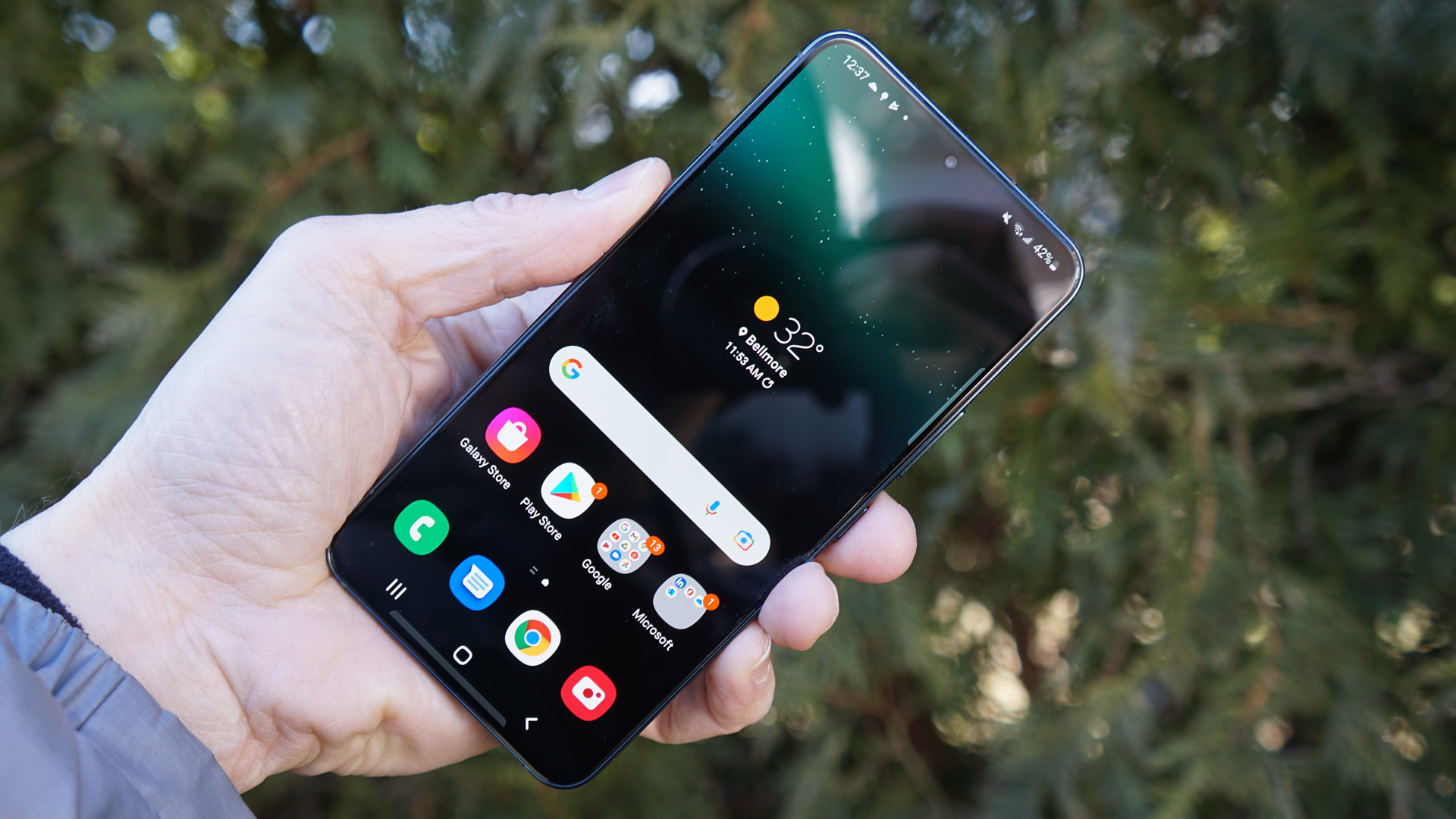The Samsung Galaxy S23 could get a small but important screen upgrade
A lower minimum refresh rate for better battery life

Sign up for breaking news, reviews, opinion, top tech deals, and more.
You are now subscribed
Your newsletter sign-up was successful
If you were hoping the Samsung Galaxy S23 line would have significantly better screens than the Samsung Galaxy S22 series then you’re probably going to be out of luck, as all signs suggest they’ll be almost identical – but there could be some small differences which might have a big impact.
According to @TheGalox_ – a leaker with a reasonable track record – the Samsung Galaxy S23, S23 Plus and Galaxy S23 Ultra will have screens that are the same size, resolution, and display type as their predecessors.
So the Samsung Galaxy S23 will reportedly have a 6.1-inch FHD+ Dynamic AMOLED screen, while the S23 Plus is said to have a 6.6-inch FHD+ Dynamic AMOLED display, and the Samsung Galaxy S23 Ultra is said to have a 6.8-inch QHD+ Dynamic AMOLED screen.
Samsung Galaxy S23 series displays • S23 Ultra: 6.8 inch 1-120hz QHD+ Dynamic Amoled Display • S23 Plus: 6.6 inch 24-120hz FHD+ Dynamic Amoled Display • S23: 6.1 inch 24-120hz FHD+ Dynamic Amoled Display There's a chance the S23 & S23+ go down to 10hz pic.twitter.com/FGU9hxKeGfJanuary 2, 2023
Where we might see changes, however, is in the screen refresh rates – although not the maximum refresh rates. All three phones apparently top out at 120Hz, just like their predecessors, and the Galaxy S23 Ultra is said to be able to get as low as 1Hz, which again is the same as the current model.
The Galaxy S23 and Galaxy S23 Plus, though, might have minimum refresh rates of 24Hz, which is half the 48Hz figure the S22 and Samsung Galaxy S22 Plus can manage. In fact, the source says there’s a chance they’ll even be able to go as low as 10Hz.
Having a lower minimum refresh rate means that when a phone is doing things that don’t require a high refresh rate they’ll be using less battery, which would in turn mean they should last longer between charges.
We’ve previously heard that these two phones might have slightly bigger batteries than their predecessors too, so between that and the refresh rate tweaks we could be looking at significant battery life improvements – assuming, that is, that this information proves to be accurate.
Sign up for breaking news, reviews, opinion, top tech deals, and more.
Analysis: don’t count on refresh rate improvements
While we’re hopeful that this refresh rate leak is accurate, another recent leak – this time from @AhmedQwaider888 – contradicts it, pointing, as @TheGalox does, to the same screen size, resolution and display tech, but with a minimum refresh rate of 48Hz for the Samsung Galaxy S23 and S23 Plus, just like their predecessors.
It’s worth noting that this source doesn’t have quite as much of a track record yet as @TheGalox, but they could still be right.
One thing is almost for sure – not much else about these screens is likely to change, other than perhaps the brightness, with previous leaks also pointing to the same sizes and resolutions as the current models.
We should find out exactly what these displays are capable of soon though, as the Samsung Galaxy S23 line is set to be announced in early February, ahead of many of the other most anticipated phones of 2023.
James is a freelance phones, tablets and wearables writer and sub-editor at TechRadar. He has a love for everything ‘smart’, from watches to lights, and can often be found arguing with AI assistants or drowning in the latest apps. James also contributes to 3G.co.uk, 4G.co.uk and 5G.co.uk and has written for T3, Digital Camera World, Clarity Media and others, with work on the web, in print and on TV.